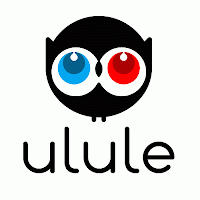I recommend checking out the IBM Social Business Insights blog for some compelling and though-provoking content.
In part 1 of this series, I reviewed the concept of
crowdfunding, and why the growth of social networking has made crowdfunding easy, possible, and popular. I also reviewed Kickstart, which is the most
popular of these types of project-funding platforms.
Only US residents can create projects in Kickstarter, though anyone in the world can help fund one. For entrepreneurs in the rest of the world, the leading crowdfunding site is Ulule, run by a team from Paris. It’s smaller than Kickstarter, but has a broader set of project categories including:
- Film and video
- Music
- Comics
- Games
- Photography
- Stage
- Solidarity
- Technologeek
- Journalism
- Design
- Sports
- Travel
- Books
- Fashion
- Green
- Childhood
- Craftsmanship
- Fine Arts
- Politics
Ulule
also explains to potential project owners about the reward system, recommending
a tiered system that increases in value as the donation increases in value, and
that gives donors rewards closely linked to the project — such as an invitation to screenings of the movie
created, a recording of the concert being financed, or a postcard of the
mountain to be climbed.
To assist in crowdfunding, for creative project owners, Ulule
has a primer available that describes the need for trust, and about the
existence of the three circles of crowdfunding:
- Friends and family
- Friends and acquaintances of friends & family
- Everyone else
 |
| Three circles of crowdfunding |
Project creators must start in the first circle, or inner
circle, and work their way outward, gaining trust and attention as they work
through their networks. (Plus, they can’t publish on the site until they have
at least five supporters.) The third network is the one with the largest amount
of available funds, and the most difficult to crack.
An IBM colleague of mine from Italy, Nicola Palmarini
(@nipalm on Twitter), first brought my attention to Ulule when he posted a personal project called
The way to l'Olympia: A documentary on
barriers between dreams and reality – a wonderful documentary about dreams,
disabilities, and accessible travel. His project received 109% of funding and
is in its final stages.
About his experience, Nicola said, When I started the
project I didn’t have a single cent in my pocket to make it happen. So I just
said myself ‘Is there any other way? No? So let’s try.’ This was a first of a
kind – I’ve never done such a thing before. And it worked out. We are now
finalizing the documentary of bringing Eleonora, a mobility-impaired friend
from Nettuno (a small village near Rome), to attend the concert of her favorite
band in Paris. She had never crossed the Italian border or flown in a plane
before.”Nicola is willing to share the lessons he learned from his experience:
- You need a good idea to move people to help you.
- Communicate, communicate, communicate; if you can use multimedia even better, but never leave your funders alone.
- When you set the funding amount, be very careful, it’s a double-edged sword. If you set it too high, then maybe you’ll not be able to reach the goal, that is, all your efforts will be in vain. If you set it too low, then you’ll have to explain that you reached the target but you need more money anyway and ask people for more funding. Not easy at all, trust me.
- Build an outer circle strategy; start from your closest friend and then enlarge the list in ring
- The kickoff is all you need to boost immediately and raise the temperature of your fundraising from day one.
- Now it's your time, good luck!
Ulule, like Kickstarter, takes a 5% commission on fully funded projects. It’s currently available in English, French, Portuguese, Spanish (beta), Italian (beta), and German (beta).
Stay tuned for the third and final part of this series, where I
delve into crowdfunding for microlending and philanthropy.


No comments:
Post a Comment